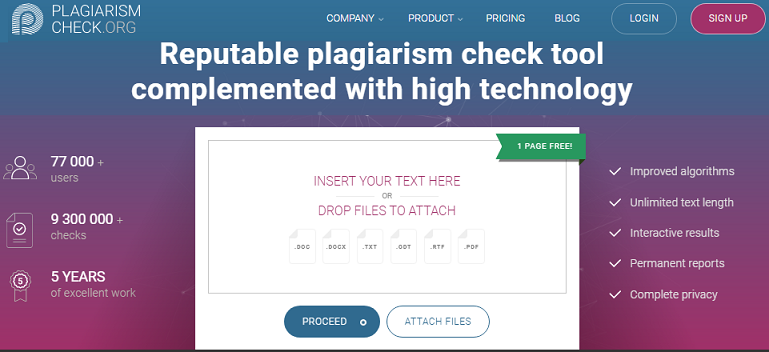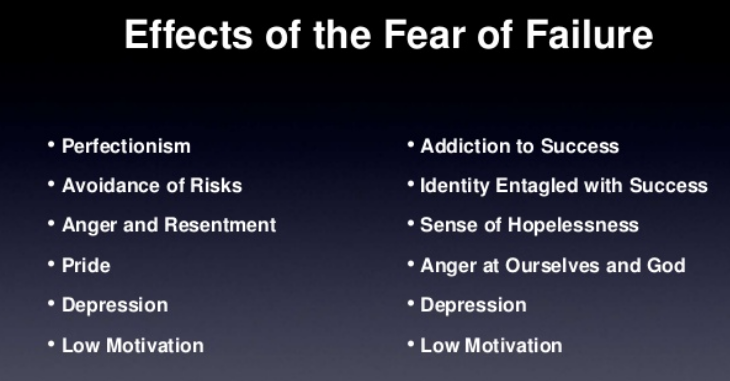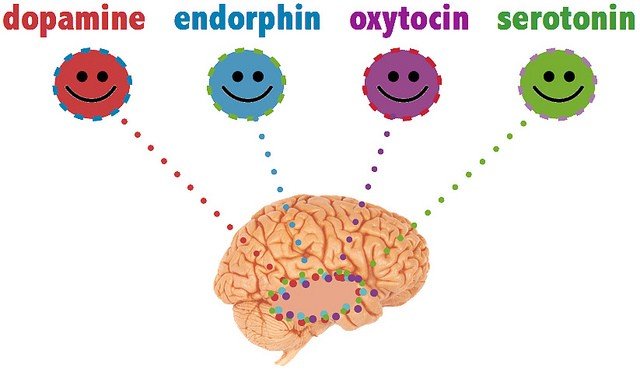
Why Students Cheat: 10 Reasons Some Teachers Ignore

Academic plagiarism is the Achilles’ heel of most educators, and the “why students cheat” question haunts them throughout the work process.
They try hard to develop students’ critical thinking and writing skills, but mentees continue to attempt to copy texts and ideas from others, claiming them as own. It’s like a slap in your face or a kick in your… well, any part of your body, isn’t it?
Despite the devastating consequences of academic dishonesty and strong policies against it in most institutions, students don’t realize the problem.
Table of Contents:
- 95% of students participated in some form of plagiarism
- 64% admitted to cheating on a test, and 58% — to plagiarism
And old but gold:
Back in 2017, Kessler International revealed smashing numbers: 76% of students copied someone else’s assignments, 54% indicated that cheating is OK and even necessary to stay competitive, and 42% said they purchased papers from custom writing services.
Sounds unpromising, huh?
Sure enough, educators have already revealed the most common reasons for plagiarism, answered the “why sdo students plagiarize essay,” and mastered the art of plagiarism detection. (Oh, if only students knew how easy it is to spot duplications in their writings… Who knows, the entire practice might disappear then!) New-generation plagiarism checker PlagiarismCheck.org updates its algorithms to find the trickiest manipulations with texts, so it takes few seconds to check for plagiarising with your eyes closed.

The only matter easier than plagiarizing is finding the evidence for it, indeed.
But still…
That ugly feeling of unappreciation and betrayal nibbles when you check mentees’ works and disclose their plagiarism, doesn’t it? In addition, some why do people cheat in school may not be as obvious as it seems, which prevents teachers from thinking about effective methods that could help solve the problem.
Why Students Cheat: Reasons for Plagiarism
Are they lazy to spend time on assignments? Are they poor writers or time managers? Or, maybe they don’t know the topic you assign?
Plagiarism causes and solutions vary, and they may depend on the types of plagiarism (whether it’s self-plagiarism, accidental plagiarism, or intentional plagiarism). Anyway, most of them are psychological rather than material.Unveil them now to understand how to work with students so they wouldn’t even think of cheating in schools.
So, why do students plagiarize?
1 – Fear of Failure
A core reason for procrastination, fear of failure is what affects student motivation and learning strategies. It appears when students dread to disappoint expectations or aren’t sure of their writing skills and topic knowledge.
“Their words are better,” they think.
“To get high grades, I need someone to write an essay for me,” they suppose.
“I can’t lose my status,” they tremble and go online to plagiarize from available publications there.
Scientists have examined the issue to see how this fear influences student behavior. Published in the British Journal of Educational Psychology, the results raise eyebrows: Fear of failure determines the methods your mentees choose to reach their learning goals. In particular, they adopt learning as a way to stroke own egos.
So, they don’t study to master the material but prove their superiority to others. With such motivation, it’s clear these students are more likely to cheat.
Effects of this type of fear are far from pleasant, either:

2 – Lack of Interest
For some teachers, it’s hard to suspect students of disinterest in their subjects.
But let’s face it:
While educational technology helps students improve the learning process today, some of them simply don’t care about the topic you assign. They don’t think it’s worth their time and energy. So they choose academic dishonesty to complete it fast and get back to what they do like.
Some teachers also mention the following detail here:
"Many students plagiarize because the academic load and requirements are too heavy for them. Since they need to submit many requirements over short periods, many of them end up plagiarizing to make writing a lot faster and so they can beat the deadline." Craig Miller, Academician and Content Manager at Academia Labs
3 – Pressure
Enormous pressure from teachers and parents to complete assignments, compete for scholarships, and eventually place in the job market turns education process into the turf battle with a focus on results rather than acquired knowledge and skills. This can be the reason why do students cheat in school.
Dr. Alex Trevatt, Director and Co-Founder at Medistudents confirms:
"The most common reason we see is external pressure to achieve a particular grade (usually by parents), combined with a lack of confidence in their ability to achieve the grade. Often, if these students had received more support earlier in their studies, they would have had the confidence to produce original work. Learning institutes can tackle this reason for plagiarism by providing more personalized tuition, although this is logistically harder and more expensive, and so it is often neglected."
And here goes a paradox:
The more intelligent your student is, the more pressure they feel.
High expectations and unreasonable demands from the public lead students to the impostor syndrome* and desire to be the best in everything they do. Feeling like they are stuck trying to handle that pressure, students plagiarize struggling to manage it in all possible ways.
* the impostor syndrome explained by The School of Life:
And plagiarism appears one way to complete all tasks on time, prove competence, and win some time for a recharge.
The stress your students experience because of that continuous pressure may lead to unintentional plagiarism or even self-plagiarism, as well: They confuse citations, forget about references, fail to paraphrase their sources right, or decide to use ideas and statements from their already-published works, ignoring the fact of self-plagiarism.
4 – Hubris
Here’s something you can agree on:
The ego of some students is so high that they think no one will catch them red-handed and they are above any consequences. Cynical about grades, they see nothing wrong with plagiarism.
This story is as old as Adam:
Back in 2002, CNN Online revealed some students’ view on cheating where they argued that they were “almost completely judged on grades” and “a person who had an entirely honest life couldn’t succeed.”
Hubris itself is not a reason why students plagiarize, but it explains why they continue doing it over and over again. Influenced by a false sense of security, such students don’t understand the shattering impact of plagiarism on their well-being.
5 – Thrill
Do you know that we all have a subconscious desire to steal from others? The mirror neuron system of a human brain makes us copy mimics, gestures, and deeds because… we feel happy when doing that.
And yes, the fear of penalty can’t help to stop it.
“Everyone is doing that,” a student exclaims and goes to copy peers’ writings.
Evolutionary psychologists call this behavior “a social glue” facilitating connections and interpersonal bonding. When copying others, we feel social participation and trigger happy chemicals in the brain to satisfy our need for excitement.

- Dopamine rules when a person expects a reward. (Read: high grades)
- Serotonin makes us feel significant. (Read: recognition from a teacher and peers)
- Oxytocin takes the stage when we feel trust. (Read: escaping accusations of plagiarism)
- Endorphin gives a moment of euphoria as a survival mechanism. (Read: completing the assignment successfully)
For some students, plagiarism is a kind of thrill. It’s a challenge to cheat a professor, escape punishment, and, therefore, feed their happy chemicals.
6 – Panic
Another reason for plagiarism among students is panic when they feel backed into a corner with strict deadlines. It doesn’t necessarily relate to laziness or poor time management:
Such a panic may appear when a student is new to the work type assigned. When you do something for the first time, it’s hard to assume how much time and energy the task requires, and it’s challenging to organize yourself the proper way.

Lynn Wolfe, an adjunct professor of English and ESL at California Baptist University |
More often than not, plagiarism is the result of desperation; perhaps the student didn’t understand the assignment or ran out of time to complete it. Because of our education system’s emphasis on grades as a measure of success, some students would rather plagiarize than receive a low score on an assignment. |
7 – Misunderstanding the Point of Learning
The chances are that a student doesn’t understand the idea behind the learning process. They assume that everything they need to do is reproduce what others (experts) have already said.
Not only can’t such students cite sources, but they believe there’s no need to do this. For them, scholarly publications are just places to go and find facts, like dictionaries where they look up definitions or correct spellings.
“Do you want me to cite EVERY sentence?” they say.
“I thought I could use only the words of experts,” they explain why a teacher asks why they didn’t share their own experience or express their own opinion on the topic.
They assume that learning is about collecting ideas from others and summarizing/paraphrasing them to remember. As a result, this generates a large amount of student cheating.
Katherine Williams, a TEFL Certified classroom ESL teacher from VerbNow, adds:
"Most students are unaware they must attribute internet content appropriately and that it constitutes the author's intellectual property. They don't understand the need for referencing since they believe that material obtained from the internet is already common knowledge. The same factor contributes to the frequent improper citation of articles from internet sources."
8 – Sloppiness
This one is about accurate note-taking:
During the research, some students can be sloppy and then confused about what they copied from the source and what they wrote themselves. Later, while writing arguments, they don’t remember whose words they were: all sources get muddled on paper and in their minds:
They rely on notes they believe were their own words.To prevent that, teachers can educate students about efficient strategies for organizing notes. Also, insist that your mentees include citations in drafts: Yeap, they say they’ll do it later, but, as we all know, they later forget where they go.
9 – Competition
As we know, some institutions practice curve-grading, which means teachers grade students by percentile. For example, they say the top 15% get an A, 35% go for a B, the other 35% are from a C, and the rest 15% share D and F.
What does the class of 100 students get in the result? The A-grade becomes available for 15 people only, which triggers competition with peers for grades!
Such a system ranks students against each other, regardless of actual learning. Craving for higher grades, they choose to cheat to improve their work and jump into an A- or B-wagon. More than that, the A students won’t help their peers to understand the material, — and those peers won’t ask for help but rather go and plagiarize — creating even more pressure.
Criterion-referenced grading would help to eliminate competition as a stressor and reduce cheating.
10 – Anonymous Feeling
The classroom is a social context, and social relationships shape behavior.
When a student doesn’t have a friendly professional relationship with a teacher and classmates, they feel anonymous and are more likely to cheat.
That’s how it works:
- Students who feel valued in class are less likely to cheat because the social costs are high: They don’t want to ruin their reputation or experience the emotions of shame and embarrassment.
- Students who feel anonymous aren’t subject to these costs: A teacher doesn’t even know or notice them, so they are more likely to cheat, with no worries about the consequences.
To prevent such situations, it would help to learn and use students’ names and, if time allows, organize some pre-class greet and talk to mentees. It will create a comfortable atmosphere and help students see they get noticed.
10 Reasons Why You Should Not Plagiarize: Unobvious Consequences
Why is plagiarism bad? The ugly truth of life is most students know the answer but still get into cheating even at the risk of expulsion. It’s the only and most obvious consequence of plagiarism students are afraid of: being caught red-handed and expelled from college.
They hardly size up the problem at full breath: The effects of such action are way more dystopian, and it would help if teachers revealed and explained them to mentees.
We asked educators to share the unobvious consequences of plagiarism for students to understand. That’s what we’ve got.
1 – Reputation loss
 Camile Clarke, Geography Teacher |
When cheating, a student gets a bad reputation because this behavior tends to be portrayed in different subject areas. Teachers discuss students’ work from time to time, and, at this point, habitual cheaters are highlighted. We tend to be somewhat lenient with mentees who plagiarize mistakenly, but habitually plagiarising in multiple subject areas can hardly be an excuse. |
2 – Health problems
"By submitting plagiarised work for a review, you can raise expectations that you can't meet. Your immune system will be weaker from either the fear of getting caught, the stress of guilt, or both. Plus, if one day, long after school and college are over, you'll need a security clearance, guess what will crop up?" David C. Berliner, Professor of Education Emeritus at Arizona State University
3 – Career failures and dangers to the public
 André Teixeira, founder of Lusa Language School |
An obvious consequence would be the penalties, but cheating, especially if it becomes habitual, can have impacts that are beyond student life. Students who study medicine, engineering, architecture, law, and other related industries need highly specialized skills and knowledge to practice in their respective fields. If they get by in school through cheating and plagiarism, they might make decisions and perform procedures that endanger the general public. |
4 – Inability to think critically and solve problems
“If you cheat, you are essentially sending yourself the message that you are willing to take shortcuts and cut corners at the expense of doing a full job. How will that attitude show up and negatively impact your relationships, your health, and your job in the future?
When students plagiarize, they deprive themselves of the ability to think critically, solve problems independently, and articulately express themselves. It will end up costing them job opportunities, promotions, and chances at success down the line because when the time comes to perform and there is nobody around to plagiarize, then what will they do?”
— Greg Freebury, teacher and founder of Think & Evolve Academy
5 – Distrust between teachers and students
David Moadel, who is an English Composition Professor, reveals another consequence: It seems clear, but students hardly think of it and understand where it may go:
“The least obvious consequence is the broken trust between the teacher and the students. When an educator assigns an essay, they place faith in mentees and trust they will work diligently. Students who cheat break that bond and foster suspicion and doubt in the teacher. Broken trust is hard to fix, and the feelings of betrayal can be persistent.”
6 – Lack of skills to argue and defend ideas
 Meredith Granger, a teacher with the Ministry of Education |
A student fails to grow their mind regarding the subject because it doesn’t get to grapple with the ideas or concepts that, if done right, would produce independent and original thought. Plagiarism shows that students don’t value their thinking. By cheating, they don’t learn to articulate, explore, and defend their own ideas. |
7 – Low self-esteem
 Mike S. Wills, Assistant Professor, Certified Mentor Coach |
Getting away with cheating teaches you that your own creativity and ingenuity are worthless. It teaches you to get ahead by cutting corners and stealing credit from others, corrodes your own sense of self-worth, and trains you to pay lip service to the promises you make and the obligations you take on. It rewards you for selling yourself short. And in the long run, it teaches you to distrust the people around you, at work, school, and home. |
8 – Theft
“Although typically viewed as academically dishonest, plagiarism at the cash register is nothing else but an economic crime. A book lifted from one author and sold as another’s is a form of monetary theft. It steals from the true author so that the plagiarizer can make an easy dollar.” — Chad Morris, English teacher
9 – A weakened educational community
 Rosemary Edmonds, Educational Consultant |
By copying others’ arguments, cheaters fail to put forward their own views on issues. Their personal perspectives are lost, which means their contribution to the academic debate is lost. As a result, well-constructed and original positions don’t take place, leading to a narrowing of academic opinion and, as a whole, a weakened educational community. |
10 – Deterioration of the human mind and wisdom
 Ana Marković, English teacher and translator |
The most unobvious consequence of plagiarism is long-term: It’s the distortion of morals and deterioration of the human spirit, mind, and wisdom. We need to get inspired by the knowledge of other people to personify the universal mind in our souls. If not inspired but only ready to use others’ knowledge, pretending it is our own, it means corruption, no development, and a decrease in progress sooner or later. |
How to Minimize Student Plagiarism in Your Institution
Is there anything teachers can do to prevent academic dishonesty? How to teach students not to plagiarize?
- Teach interpretation and analysis to students. Please explain how to process the information they find in sources.
- Discuss and ensure your students understand why they need to cite sources.
- To make them feel comfortable with writing, tell them about the importance of personal writing style and tone of voice. Explain that you want to see how well they understand the topic rather than gobbledygook of sources they used for research.
- Teach them to state a thesis before they begin researching. Encourage them to outline essays and insist that they include citations in the drafts.
- Debunk the myth of grades’ high importance for future success. Explain that A’s don’t matter if a student doesn’t have the skills to show for them.
- Divide assignments into parts: Have students submit outlines or bibliographies before final drafts for better planning and time management. It will help to make tasks less overwhelming for your mentees.
- Require mentees to write a hypothesis before they start researching. Test and refine them if necessary.
- Teach them how to cite sources properly to avoid unintentional plagiarism.
- Allow students to choose topics and use real-life anecdotes in their essays to enhance their interest in writing.
- Explain the difference between plagiarism and paraphrasing. Teach the necessary components of paraphrasing and explain how to use them right. At the same time, teach them to summarize rather than paraphrase.
- Unveil all, including the most unobvious, consequences of plagiarism for your students to realize the problem.
- Help students learn how to organize their work, especially if the task is complex and they are novices. Explain the process problems and discuss by modeling what they should do.
- Always discuss why the assignment is critical in the context of the class and overall learning. Students need to know what knowledge and skills they’ll gain from doing this task.
- Show them examples with uncited summaries and ask them to identify and correct the problem.
- When a student submits a paper, scan it: If a mentee cited nothing but only direct quotes, explain what’s wrong and ask to revise.
Reasons why students cheat are many, and yet none makes this issue acceptable. Students copy-paste, see nothing wrong with plagiarism, believe they are untouchable and uncatchable, and even try to come up with tricks to delude plagiarism checkers.
For Students: Tips to Reduce Plagiarism in Academic Papers
- Learn where and how to place citations and format them correctly. It will help you remember that paraphrases, summaries, and quotes all need a reference.
- Pay precise attention to research, combine different types of sources, and do your best to include alternative opinions on the topic. Say no to citing Wikipedia!
- Embrace academic integrity and learn to be responsible for your deeds in college. If you need help with writing assignments, there are tons of free and legal resources online to get it: social media groups share tips, writing forums assist with research, online libriries and Q&A websites help with resources, etc.
The good news is, you can handle it!
In 2023 on its way, teachers are skilled and tech-savvy enough to understand why students cheat and enhance the quality of education in their institutions. Up-dated instruments, more study time spent on building productive relationships with your mentees, emotional intelligence as a must-develop skill in college – and a plagiarism-free academic world won’t look like a never-never land anymore.